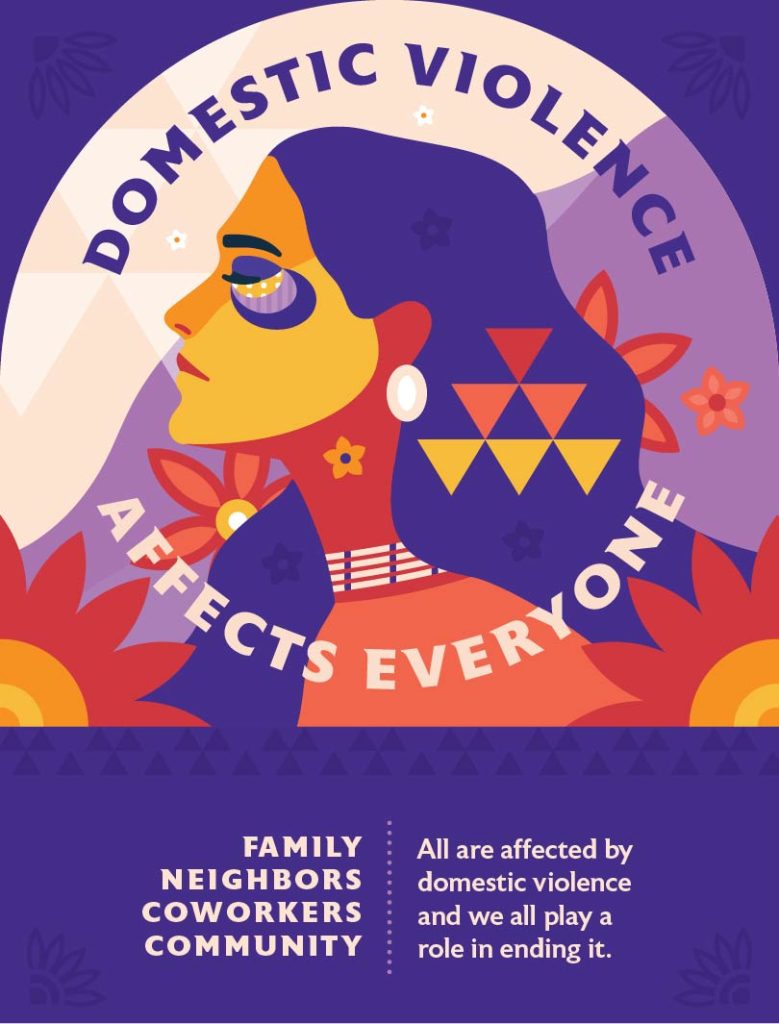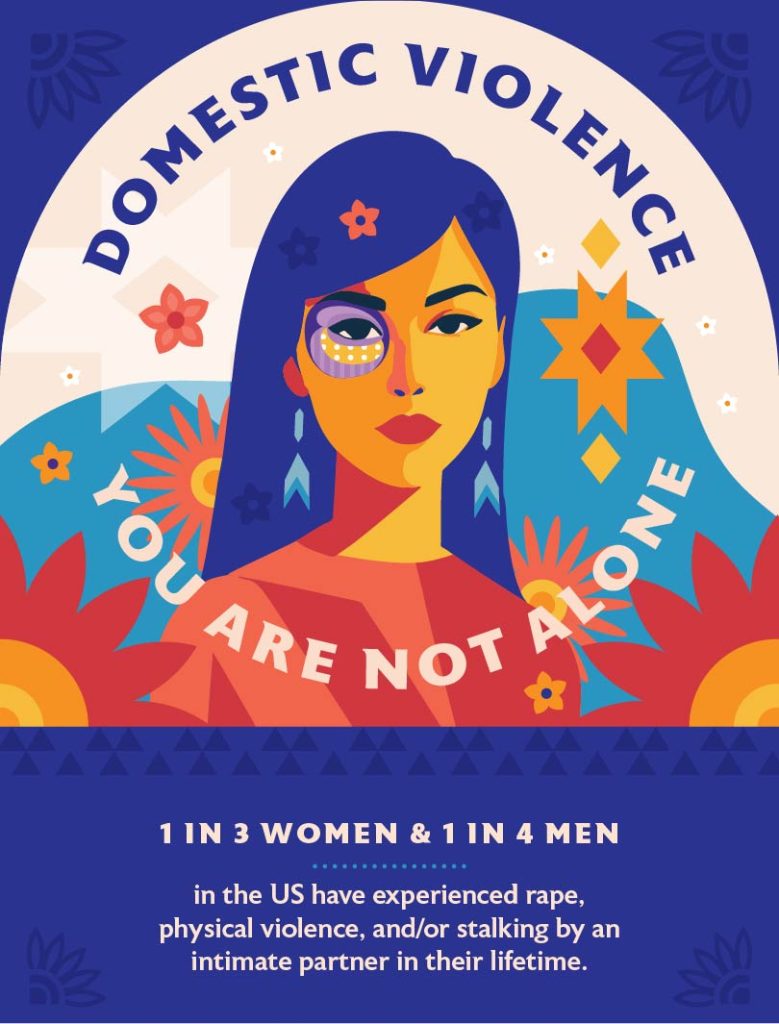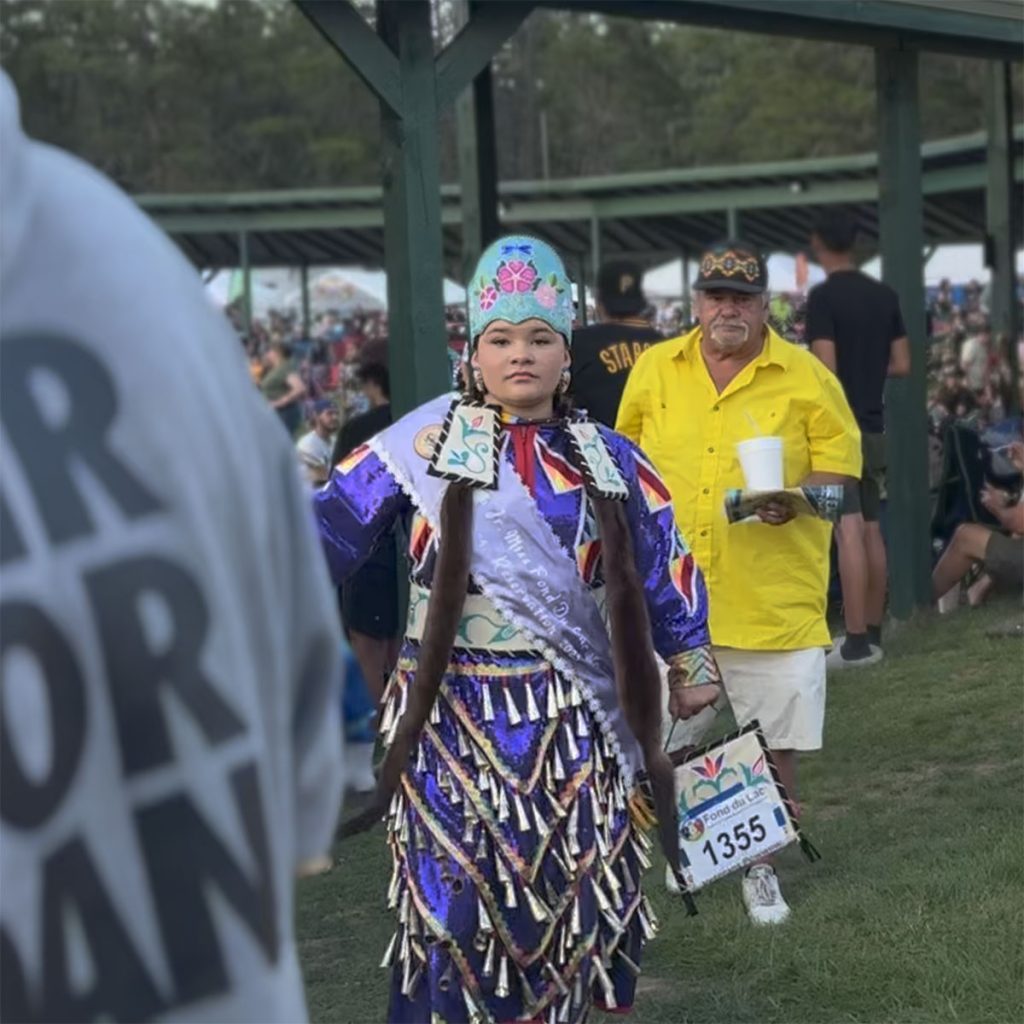
You Are Not Alone
If you or someone you love is experiencing domestic violence, know that we are here to help. The following helplines will connect you to 24/7 support to walk you through your options for your situation. In case of a life-threatening emergency, please call 911.
Let's Heal Together
Oakwood Haven is open 24 hours a day, 7 days a week, 365 days a year. Our staff are ready to help at any time. Our goal is to walk with you in your journey towards health and safety, while maintaining strict confidentiality.
Services
- Advocacy
- Housing
- Job Searching
- Life Skills
- Restraining Orders
- Domestic & Sexual Violence Support Groups
- Transportation for health appointments, court dates, and restraining orders (Must be DV or SA related)
- Sexual Assault Nurse Examiner is available and free for victims of sexual assault
Advocates
Oakwood Haven has a variety of advocates to meet your needs. Each advocate is cross trained and can help at any time. Our advocates include:
- A children's advocate
- A sexual assault advocate
- A victim advocate


Our Staff
Melinda Taylor
Director
Susan Taylor
WCSF Project Coordinator
Rosanne Barber
Sexual Assault Specialist
Carol Trepania
Sawyer County Victim Advocate
Denise Johnson
Male Sexual Assault Advocate
Rachel Teschendorf
On Call Sexual Assault Advocate
Cynthia Taylor
On Call Critical Relief Staff
Bonnie Smith
On Call Critical Relief Staff
By the Numbers
men and women in the U.S. are victims of violence, rape, or stalking by an intimate partner each year - that's 24 people per minute.
Source: thehotline.org
of Native Americans are survivors of domestic abuse.
Source: thehotline.org
Native women have experienced violence.
Source: indianlaw.org
of Native American teens experience teen dating violence – the highest rate compared to other Americans.
Source: indianlaw.org
of domestic violence abusers also abuse children in the household.
Source: thehotline.org
homicide victims are killed by an intimate partner.
Source: cdc.gov
Native women have reported
domestic violence rates compared to the rest of the U.S.
Source: indianlaw.org
Native women are murdered at
the national average on some reservations.
Source: indianlaw.org
Rates of PTSD are
for Native children exposed to violence than for the rest of the U.S.
Source: indianlaw.org
Native Americans are
to experience rape or sexual assault in their lifetimes compared to other Americans.
Source: indianlaw.org
Native Americans are
to experience violent crimes in their lifetimes compared to other Americans.
Source: indianlaw.org
Native Americans are
to be victims of homicide in their lifetimes compared to other Americans.
Source: indianlaw.org
Survivors are
to be diagnosed with anxiety and/or depression.
Source: thehotline.org
Survivors are
to have a substance use disorder.
Source: thehotline.org
Survivors are
to attempt suicide.
Source: thehotline.org
Frequently Asked Questions
What is domestic violence?
Domestic violence – also known as intimate partner violence or relationship abuse – is a pattern of behaviors used by one partner to gain or maintain power and control over another partner. The behaviors can include verbal and non-verbal communication or physical actions, but the intent is to harm the victim.
What types of abuse are there?
Multiple forms of abuse are used in domestic violence situations to get or maintain control over the victim. These include:
- Physical abuse
- Emotional abuse
- Sexual abuse
- Financial abuse
- Digital abuse
- Cultural abuse
- Spiritual abuse
- Stalking
You can learn more about these types of abuse from the National Domestic Violence Hotline and the StrongHearts Native Hotline.
How can I tell if I am being abused?
Recognizing abuse in a relationship can be difficult, especially at the beginning of a relationship. However, there are common red flags to watch for, and even one or two of these behaviors can indicate that there is abuse in your relationship. These behaviors include (but are not limited to):
- Telling you that you never do anything right
- Showing extreme jealousy of friends, family, or time spent away from them
- Preventing or discouraging you from spending time with others, especially friends, family members, and peers
- Insulting, demeaning, or shaming you, especially in front of others or online
- Preventing you from making your own decisions
- Trying to keep track of you, such as constantly texting or calling you or going through your phone or social media accounts
- Controlling your finances without discussion, such as taking your money or refusing to provide money for necessary expenses
- Pressuring you to have sex or perform sexual acts you are not comfortable with
- Pressuring you to use drugs or alcohol
- Intimidating you through threatening looks, words, or actions
- Insulting your parenting, or threatening to hurt or take away your children or pets
- Threatening you with weapons, such as firearms, knives, bats, or mace
- Destroying your belongings or your home
How do I recognize if a loved one is in an abusive relationship?
- Having unexplained marks or injuries
- Noticeable changes in their personality, including depression and anxiety
- Constantly worried about making their partner angry
- Justifying or making excuses for their partner’s behavior
- Stopped spending time or communicating with friends and family
- Their partner puts them down in front of others
- Their partner is extremely jealous or possessive
Why do people stay in abusive relationships?
Abusive relationships are about power and control. When a victim leaves or attempts to leave, it threatens the power and control their partner has over them. To maintain or reclaim that control, the partner may retaliate with harmful or dangerous methods. This can endanger the victim and any children or pets in the household.
In addition to this, victims may stay in an abusive situation due to:
- Fear
- Shame
- Intimidation
- Normalized abuse
- Low self-esteem
- Lack of resources and support
- Disability
- Immigration status
- Cultural context
- Love
- Children
Can I save or "fix" an abusive partner?
While people can change, they have to want to change and be committed to putting in the effort. However, it is unlikely that an abusive partner will change. They know these behaviors are harmful and they use them to get power and control in a relationship. Abuse is not something that you or anyone else can fix for your partner. It is not your responsibility to fix your partner. The partner has to come to that realization on their own and make changes from there.
How do I protect myself in an abusive situation?
Make a safety plan:
Tell someone you trust (such as friends, family, neighbors, co-workers, and Tribal leaders) about what is happening and talk about ways they might be able to help.
Memorize emergency numbers for the local police, support persons, and crisis hotlines. For example, the National Domestic Violence Hotline number is 1-800-799-SAFE (7233).
Identify escape routes and places to go if you need to flee from an unsafe situation quickly.
Talk with your children or roommates about what to do if a violent incident occurs or if they are afraid.
Put together an emergency bag with money/checkbooks, extra car keys, medicine, and important papers such as birth certificates, social security cards, immigration documents, and medical cards. Keep it somewhere safe and accessible, such as with a trusted friend or at your place of work.
Trust your instincts — if you think you are in immediate danger, you probably are. If you are afraid for your safety and want the police to come to where you are now, call 911.
How do I support someone in an abusive relationship?
It is difficult to see someone you love in an abusive relationship and not know how to help. While it is tempting to try to “save” them from the situation, it is not a good option. Besides taking away more autonomy from the victim, it can put them and even you in danger. Abuse is built on power and control; if the abuse feels that power and control is threatened, they can retaliate in harmful and dangerous ways.
The most important thing you can provide for a victim of domestic abuse is support. You can support a loved one by:
- Providing a nonjudgemental space that allows your loved one to open up to you if they feel comfortable doing so
- Acknowledging their situation is difficult, scary, and brave of them to regain control from
- Respecting the decisions they make without criticizing or guilting them, and continue to care for them
- Not speaking poorly of the abusive partner
- Developing a safety plan with them
- Being there for them, regardless of whether they leave the relationship or not, or whether they return
- Encouraging them to participate in activities outside their relationship with family and friends, and being there to support them in such a capacity
- Offering to go with them to any service provider or legal setting for moral support
- Helping them identify resources for further help and guidance and a support system that can provide for physical needs
- Not posting information on social media that can be used to identify your loved one or where they spend their time
- Helping store important documents and other important items in case of an emergency
- If given permission, helping to document the abuse and storing the evidence where the abuser can’t easily find it
- If given permission, informing the loved one’s neighbors and coworkers of the situation, and ensuring they are aware of what to do (or what not to do) during a moment of crisis or confrontation with the abusive partner
What can I say to a survivor of domestic abuse?
Here are some things you can say when talking with a survivor of domestic abuse:
- “You didn’t deserve what happened to you. There is no excuse for abuse.”
- “I’m glad you’re safe now that you’re out of the situation.”
- “I believe you. I’m sorry this happened to you. I appreciate you trusting me.”
- “You are not alone. I care a bout you, and I’m here to listen or help in any way I can.”
- “Whatever reaction you are having is normal. You are not going crazy.”
- “I’m here to listen and not judge. What can I do to support you?”
These are not things to say to a survivor:
- “Why did you wait so long to leave?”
The decision to leave an abusive home isn’t an easy one. - “What did you do to provoke the abuse?”
Abuse is the responsibility of the abuser only. - “Is it abuse if he didn’t hit you?”
Abuse is not only physical. It is also verbal, psychological, emotional, spiritual, etc. - “There are two sides to every story.”
No matter what the other side of the story is, no one deserves to be abused. - “You need to move on.”
Healing is a journey. It can take a lifetime for someone to overcome their pain.



